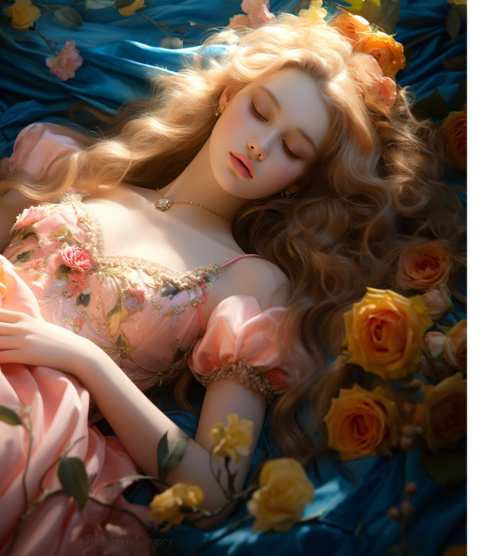Lights out. You snuggle under the covers and drift off and are immediately transported to some place with an existence far different from which you are in now. You experience this new world heavily through visual images. If you remember it when you awake, the memories of the images will flicker through your mind. But wait, what about those persons without sight? Do blind people dream? Can blind people dream? If so, what shapes the landscapes of their nocturnal experiences? In this exploration, we embark on a journey to unravel the enigma of dreams in the blind community, discovering that the answers are as diverse as the dreams themselves.
Do Blind People Dream?
The short answer is yes, blind people do dream. The nature of their dreams may vary though, and it depends on factors such as whether they were blind from birth or lost their sight later in life. The content of dreams for blind individuals can include a mix of sensory experiences, and while they might not have visual elements as vivid as sighted people, they often compensate with enhanced sensations of sound, touch, taste, and smell. The experience of dreaming is not exclusive to those with sight.
What Do Blind People Dream About?
Just like people with sight, blind individuals will have varying experiences in their dreams. Like, being in situations that are totally new and probably hoped for on some level in their subconscious, having strange occurrences that certainly could never happen in reality, or perhaps reliving real life happenings from memories that seem to take centre stage in dreams.
According to Healthline, researchers conducted a study in 1999 that examined the dreams of 15 blind adults over two months. The findings indicated that, for the most part, the dreams of blind individuals closely resemble those of sighted people, albeit with a few distinctions:
- Blind people had fewer dreams about personal success or failure.
- Blind people were less likely to dream about aggressive interactions.
- Some blind people seemed to dream about animals, often their service dogs, more frequently.
- Some blind people reported more frequent dreams about food or eating.
- The blind people who participated in the study dreamed about travel or movement-related misfortune about twice as often as sighted people.
So, yes persons with visual impairments do dream. However, the question is how do they experience these dreams. Do blind people dream in visual images?
Unlike the colorful and vivid dreamscapes of sighted individuals, the dreams of the blind community exhibit a fascinating spectrum. Some see full colourful, visual scenes, resembling the dreams of those with sight. Others encounter fragments of visual images, while some have dreams devoid of a visual component, something which sparks much debate among researchers.
Understanding the nuances of blind individuals’ dreams requires a closer look at when in their development they lost their sight.
Getting Blind Later in Life
Much like how age is a determinant of what do blind people see generally, it is also an important factor in deciding what a blind person will see in their dreams. It is not too far fetched to understand that an individual who used to see, especially someone who became blind at a much later age, would still be able to have visual dreams. Their brains already have memories of what the world and its contents look like, so those persons will continue to dream visually. In the case of places and objects they never saw before going blind, their minds will create visual representations of these items based on how they had experienced them through their other senses. Again, this is a phenomenon which is similar to the situation which gives rise to what blind people see in general.
Becoming Blind After Ages 5-7
For individuals who lost their sight after the critical age of five to seven, visual dream content becomes less than that of persons who were blind later in life but more prominent than persons who were born blind. However, it still does not match the intensity of sighted individuals. Dreams of movement or travel gain significance, possibly mirroring the challenges blind individuals face in navigating the waking world.
People Who are Congenitally Blind
For those congenitally blind (born without sight) debates persist on the visual nature of their dreams. Some argue that congenitally blind individuals lack visual dream content, while others challenge this notion, citing brain scans that reveal similar vision-related electrical activity during sleep.

Studies reveal intriguing aspects of dreams in congenitally blind individuals. While their dream content may include visual elements, it occurs less frequently and with lower intensity compared to sighted individuals. The absence of external visual memories leads to dreams shaped by internal electrical fluctuations, resulting in abstract visual sensations, possibly spots or blobs of color correlated with other senses.
It is important to note though that studies conducted to understand how do blind people dream are only a few and have small sample sizes. So, the question of can blind people dream still remains a complex puzzle. Yes, brain scans during sleep offer glimpses into the neural dance of visual activity, suggesting that even the congenitally blind experience visual sensations during dreams. However, the challenge lies in interpreting these sensations, as congenitally blind individuals lack the external references that shape visual memories. If they are asked whether they have visual images in their dreams, they would tend to respond no as they have never seen before to understand what an image looks like.
The Role of Other Senses:
Although what their dreams look like visually may vary, there is no doubt that the role that other senses play is important for all blind persons. Compensating for reduced visual content, especially if blindness existed from birth, blind individuals experience an amplification of other senses in their dreams. Sounds, smells, and touch sensations take centre stage, creating a rich tapestry of sensory experiences. These dreams become a cross-modal symphony, where the mind weaves intricate narratives, unbound by the limitations of sight.
Nightmares
Nightmares, the shadowy side of dreams, haunt the sleep of blind individuals as well. Research suggests that blind individuals, particularly those born blind, may experience nightmares more frequently. These dreams, often involving travel-related misfortunes, could mirror the challenges faced in their waking lives.
Conclusion:
As we navigate the landscapes of blind individuals’ dreams trying to answer the question do blind people dream, it becomes clear that the world of dreams transcends the visual spectrum. Dreams, shaped by memory, brain circuitry, and sensory experiences, offer a unique canvas for the blind community. While the visual component may be subdued, the richness of their dreamscapes, painted in sounds, smells, and touch sensations, unfolds into an intricate world of experiences. In the unseen world of dreams, blind individuals continue to embark on their own extraordinary nocturnal odyssey.


